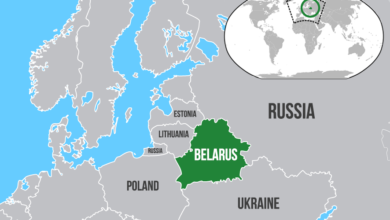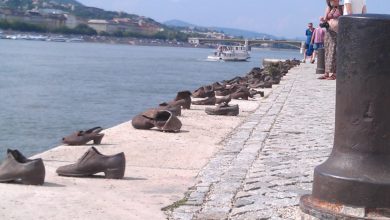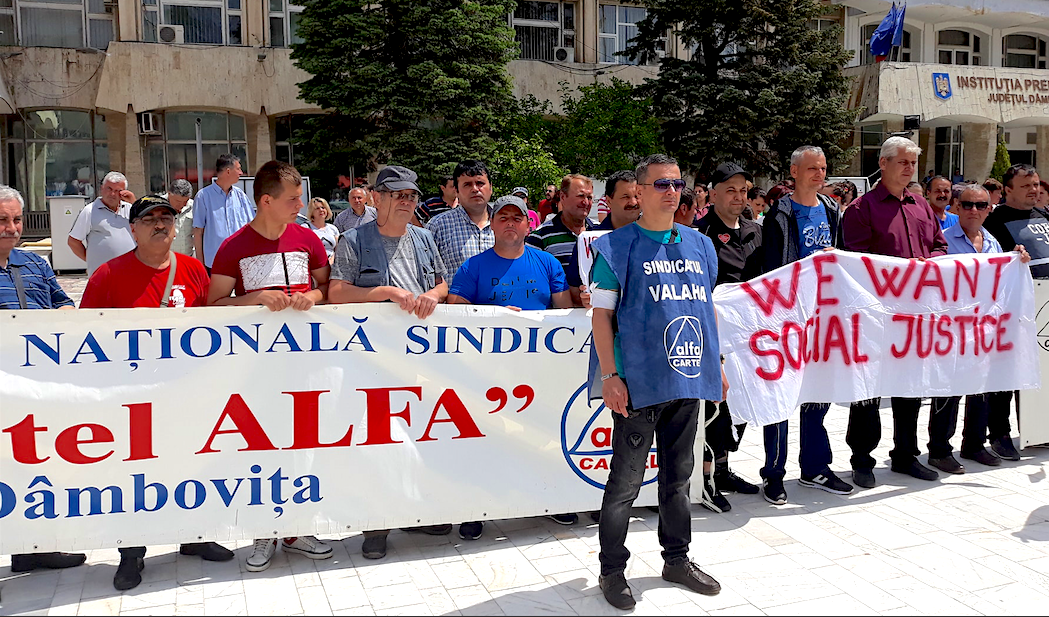Boris Yeltsin, the first post-Soviet president of Russia, died last week in Moscow of heart failure at the age of 76. Yeltsin will best be remembered for his central role in the catastrophic destruction of the Soviet Union. Representatives of the leading imperialist nations rushed to pay tribute to the former president. Meanwhile, ordinary Russians reacted with bitterness and anger towards his criminal legacy.
British prime minister Tony Blair remarked, “It is with sadness that I learned of the death of former president Yeltsin. He was a remarkable man who saw the need for democratic and economic reform and in defending it played a vital role at a crucial time in Russia’s history.”
U.S. defense secretary Robert Gates: “I extend my sympathies to his family and condolences to the Russian people. No Americans at least will forget seeing him standing on the tank outside of the white house resisting a coup attempt. He received me in the Kremlin when I came here in 1992 and I think was an important figure in Russia’s evolution toward democracy.”
Strobe Talbott, deputy secretary of state under Bill Clinton: “I think history will judge Boris Yeltsin very positively. He was instrumental in the most important and positive transformation of our lifetime, which consists of the end of the Cold War, the end of the Soviet Union and the beginning of Russia’s integration into the west. … One of his driving passions was to drive a stake through the heart of the Soviet-era Communist party and make sure it did not come back from the dead.”
Russian president Vladimir Putin paid tribute to Yeltsin as a “courageous national leader” who played a huge role in the birth of Russian democracy.
Putin continued, “He was the first Russian president. With this title he has forever entered the history of the country and the whole world.
“A man passed away, thanks to whom a whole new epoch began. A new democratic Russia was born, a free state open to the world. A state in which power truly belongs to the people.”
Interestingly, as reported by several international media outlets, “the people” expressed a rather different view of Yeltsin’s legacy.
On the streets of Moscow, ordinary Russians railed against the many failures of Russia’s first post-Soviet president, from the break-up of the Soviet Union, to the war in Chechnya, to the wholesale selling off of state assets to a handful of oligarchs.
A retired doctor reflected the bitterness that many older Russians still feel at Mr. Yeltsin’s role in bringing about the collapse of the Soviet Union in 1991. “I trusted him and he sold out our country,” he said.
“My father spent 50 years in the (Communist) party and thought that what he did was for the good of the people. In the end, everything he did was for a handful of embezzlers.”
A passerby, overhearing the conversation, joined in. “Yeltsin is dead?” he shouted. “He was a traitor, a traitor! He sold Russia to the lowest bidder.”
“I think all of Russia is celebrating in silence,” said, 29-year-old Pavel Zarifulin. “[Yeltsin] destroyed the country‑only [Mikhail] Gorbachev did worse.”
Yeltsin is especially hated for his role in the privatization of state assets after the Soviet collapse. This process left a handful very rich while millions slid into dire poverty.
“I have fairly negative feelings towards him because … what he did, particularly the privatizations, he did illegally, even criminally,” said 20-year-old Dmitry Ulianov, a philosophy student at the Moscow State University.
These privatizations are widely regarded as wholesale theft of state property. Pensions and wages went unpaid and poverty, homelessness and hunger soared. Over the course of the 1990s, Russia’s GDP fell by 50 percent, fully 30 percent of the population fell into poverty, the mortality rate increased by 50 percent, and life expectancy for men was cut by six years.
Meanwhile, according to the latest Forbes report, the policies of Yeltsin and his successor have created at least 60 Russian billionaires.
As president of Russia, Yeltsin prosecuted a war in Chechnya to suppress a separatist movement in the southern Russian region. Tens of thousands of civilians and thousands of Russian soldiers died during the 1994-1996 Chechen war.
“He never understood his main mistakes,” said Piotr Loznitsa, a craftsman. “The war in Chechnya, the poverty of the people and Russia’s geopolitical losses [came] as a result of the collapse of the Soviet Union.”
Vitalii Tret’iakov, former editor-in-chief of the Russian daily newspaper Nezavisimaia Gazeta, offered a particularly ugly image of Yeltsin’s presidency. “For the greater part of his presidency,” Tret’iakov wrote, “Yeltsin slept, drank, was ill, relaxed, didn’t show his face before the people and simply did nothing. Despised by the majority of citizens in the country, Yeltsin will go down in history as the first president of Russia, having corrupted (the country) to the breaking point, not by his virtues and or by his defects, but rather by his dullness, primitiveness, and unbridled power lust of a hooligan. …”
The destruction of the Soviet Union has been an abject catastrophe for the vast majority of the people of Russia. It has paved the way for unprecedented assaults on living standards and democratic rights in the advanced imperialist nations. Likewise, it has triggered a convulsion of imperialist war, neocolonial aggression, and fierce struggle between the world’s capitalist powers for control over natural resources. The plainest expression of this process has been the disastrous wars against Iraq and Afghanistan.
In the long view of history, Boris Yeltsin will surely be remembered as a criminal hack who played a key role in the worst setback for the working-class since the defeat of the Paris Commune.






